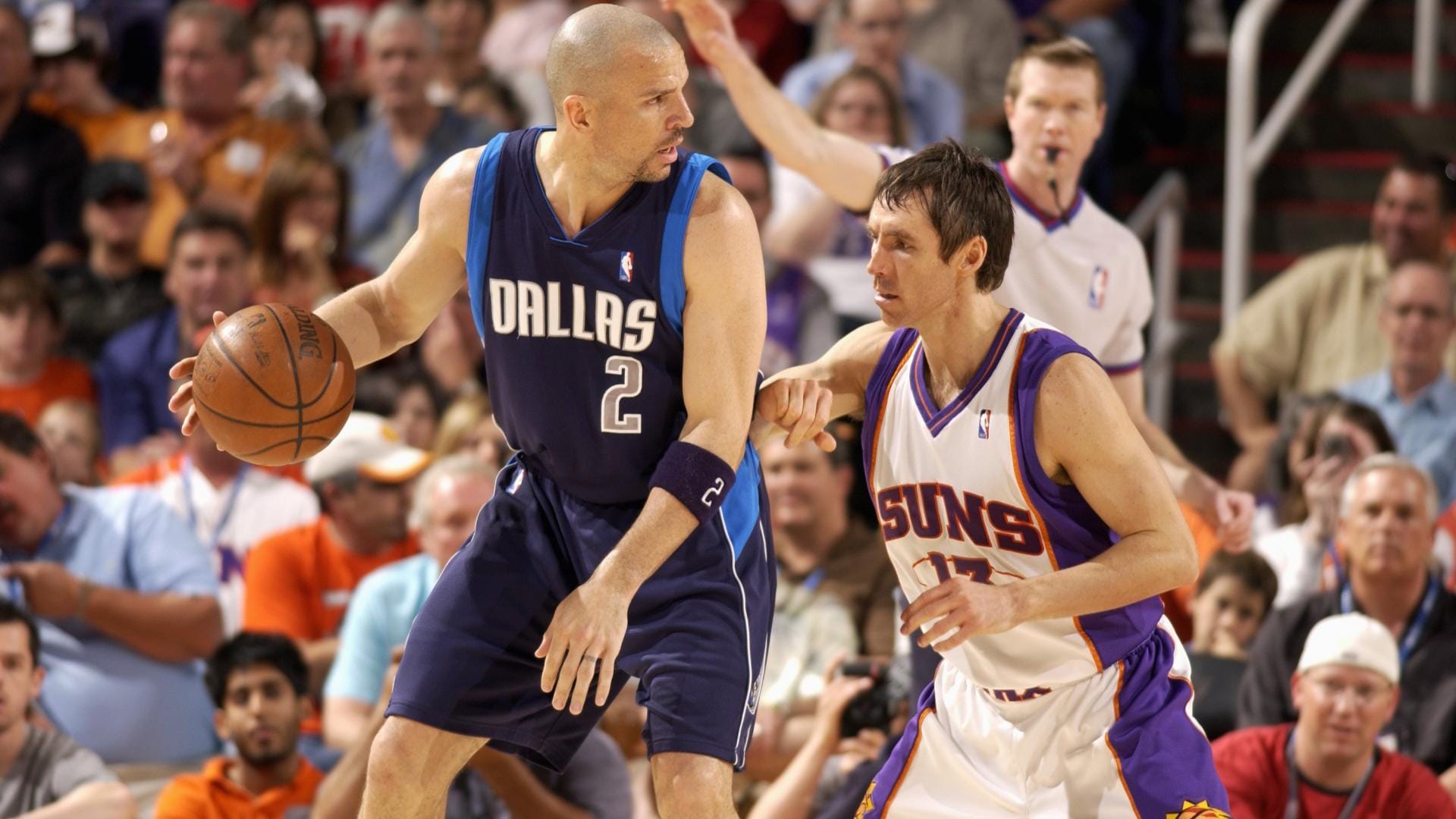Jason Kidd finished second in MVP voting in the 2001-02 season while averaging just 14.7 points per game. That was (and remains) the lowest scoring average for a player who finished in the top three in MVP voting since Wes Unseld won the award averaging 13.8 ppg in 1968-69.
And that speaks to the greatness of Kidd, who was rarely a game’s leading scorer, but usually its best player.
The triple-double can be arbitrary because 10, 10, and 10 isn’t necessarily better than 11, eight, and 11. But Kidd’s 107 career triple-doubles help define the kind of player he was. The rebounds were about his anticipation and ability to beat opponents to the ball. The assists were about putting his teammates in position to score. Kidd was also one of the best defensive guards of his generation.
Kidd could put the ball in the basket too. He became a solid 3-point shooter in the second half of his career and hit some big shots in big games. But it was everything else that made him one of the best point guards in NBA history.
Growing up in Oakland, Calif., Kidd was the national player of the year in high school. He attended the University of California, where he was the national Freshman of the Year and a First Team All-American as a sophomore.
After two years at Cal, Kidd was selected by the Dallas Mavericks with the No. 2 pick in the 1994 Draft. And he made an immediate impact in the NBA.
He almost recorded a triple-double in his first NBA game, tallying 10 points, nine rebounds, and 11 assists in a win over the Nets. Six days later in Philadelphia, he had 19, nine, and five, along with two steals. His performance included one incredible circus shot and a hustle play to seal the win for the Mavs.
Kidd would record a league-leading four triple-doubles as a rookie, with the greatest of those performances coming in a double-overtime victory over the eventual-champion Houston Rockets. He finished with 38 points, 11 rebounds, 10 assists, and three steals, hitting two incredible 3-pointers to lead the Mavs back from an 11-point deficit in the first overtime.
Averaging 11.7 points, 5.4 rebounds, 7.7 assists, and 1.9 steals while helping the Mavs win 23 more games than they did the season before, Kidd was named co-Rookie of the Year with Grant Hill. And in his second season, he was selected as an All-Star starter, making the first of his 10 All-Star appearances, leading a young Mavs team that ranked second in the league in pace.
Kidd was traded to Phoenix midway through his third season. From that point on, he would reach the playoffs in each of his last 17 seasons in the league. And in his first full season with the Suns (1997-98), they won 16 more games than they did the season before.
In 2001, he was traded to New Jersey, where the Nets doubled their win total from the previous season. At the time, the team’s jump from 26-56 (in 2000-01) to 52-30 was the sixth-biggest improvement in NBA history. With it came the first of two straight trips to the NBA Finals.
He had the vision to see angles that no other player sees (or that aren’t even there yet), the creativity to come up with unique ways to get the ball to its destination, and the nerve to make passes that no other point guard would dare make.
In 2008, Kidd returned to Dallas, from where he looked back on his career, knowing that one thing was still missing from his resume.
Kidd wasn’t the same player he was in his previous stops, but he was a veteran floor leader for the Mavs, shooting better than 40% from 3-point range in his first two seasons back in Dallas and still dropping dimes.
Kidd and the Mavs would get their championship in 2011. And in the final season of his playing career, he helped the Knicks win 18 more games than they did the season prior, still making teams better at 40 years old.










